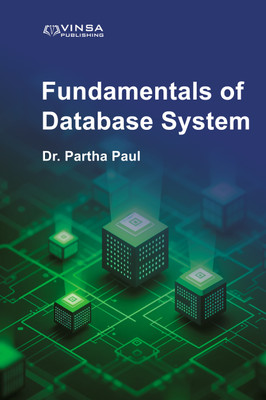Fundamentals of Database System(Hardcover, Dr. Partha Paul)
Quick Overview
Product Price Comparison
"Supply chain management is only one of several sectors that is being impacted by the AI revolution. Organizations may greatly improve their decision-making, operations, and production by utilising AI's capabilities. In this introduction, we hope to lay out the groundwork for a discussion of how artificial intelligence (AI) could revolutionise supply chain management and to identify the most promising applications of this technology. Organizations confront a multitude of problems in today's intricate and ever-changing global supply chains, including fluctuating demand, interruptions in supply, and increasing expenses. To overcome these obstacles and boost productivity, AI provides cutting-edge solutions. With the use of AI, a wide range of tasks can be automated and improved, including demand forecasting, inventory optimization, transportation planning, and risk management. Among the many uses of artificial intelligence (AI) in SCM that are covered in this book are: Predictive analytics: Utilizing AI to forecast demand, identify potential disruptions, and optimize inventory levels. For instance, AI-powered demand forecasting models can analyze historical sales data, market trends, and external factors to accurately predict future demand patterns, enabling organizations to optimize inventory levels and avoid stockouts or excess inventory.Intelligent automation: Automating repetitive tasks, such as order processing and shipment scheduling, to improve efficiency and reduce errors. AI-powered robotic process automation (RPA) can automate mundane tasks, freeing up human resources to focus on higher-value activities. Additionally, AI-driven chatbots can handle customer inquiries and provide real-time support, improving customer satisfaction and reducing operational costs.Supply chain visibility: Enhancing visibility into supply chain operations through real-time data tracking and analytics. AI-powered IoT sensors and data analytics platforms can provide real-time visibility into inventory levels, transportation routes, and supply chain performance, enabling organizations to identify and address potential issues proactively.Decision support: Providing AI-powered recommendations and insights to support strategic decision-making. AI-driven decision support systems can analyze vast amounts of data to identify patterns, trends, and anomalies, providing valuable insights for supply chain managers. For example, AI can help identify the optimal transportation routes, optimize warehouse layouts, and assess the impact of supply chain disruptions.Risk management: Identifying and mitigating risks, such as supplier failures and natural disasters, using AI-based risk assessment. AI-powered risk assessment tools can analyze historical data, market trends, and external factors to identify potential risks and develop mitigation strategies. This can help organizations avoid disruptions, minimize financial losses, and ensure business continuity.Beyond these core applications, AI can also be used to:Optimize transportation and logistics: AI can optimize transportation routes, improve fleet management, and enhance last-mile delivery. For example, AI-powered algorithms can analyze traffic data, weather conditions, and other factors to determine the most efficient routes and reduce transportation costs.Improve supplier relationship management: AI can help analyze supplier performance data, identify potential risks, and optimize supplier contracts. By leveraging AI, organizations can build stronger relationships with their suppliers and ensure a reliable supply of goods and services.Enhance sustainability: AI can be used to optimize supply chain sustainability by reducing waste, improving energy efficiency, and minimizing environmental impact. For example, AI-powered algorithms can optimize transportation routes to reduce fuel consumption and carbon emissions.Supply chain managers may get an advantage in today's dynamic market, increase customer happiness, and boost productivity by utilising AI. In order to provide readers a thorough grasp of this revolutionary technology, this book will explore the unique applications, advantages, and disadvantages of AI in supply chain management. "


